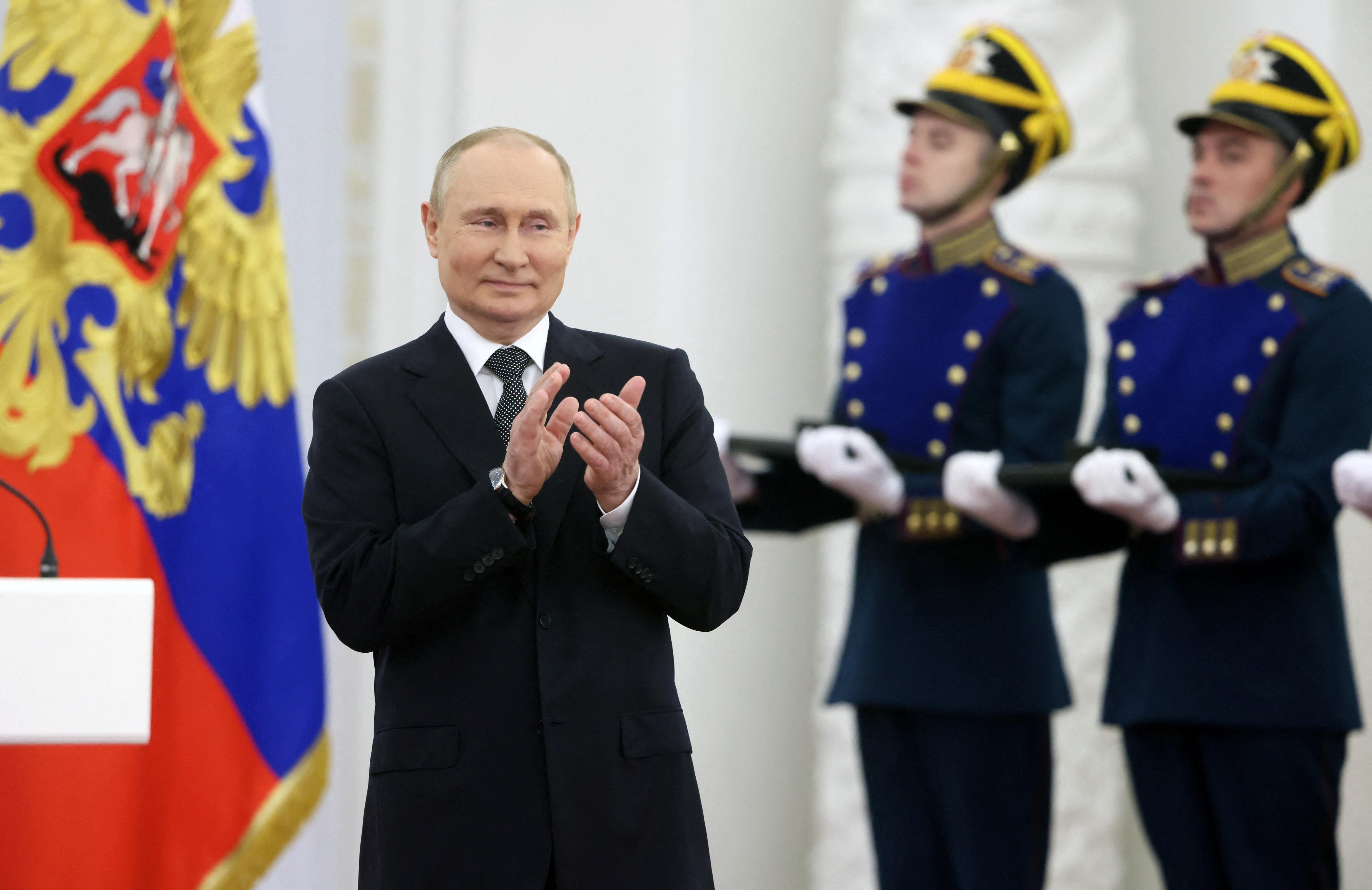What We’re Watching: Putin’s progress, Italy’s right turn, a not-so-great Iraqi resignation
Putin’s progress
It’s been a positive few days for Russia’s president and his war on Ukraine. Russian forces appear close to capturing the strategically important city of Severodonetsk, bringing them a step closer to control of the Donbas region of eastern Ukraine. If they can accomplish that, Putin may well move to annex the entire area. Ukrainian officials have called urgently for faster delivery of heavy weapons to counter superior Russian firepower, but plunging stock markets in Europe and the US will strengthen the arguments in the West from those who oppose continued large-scale financial and military help for Ukraine. A new report from the independent Centre for Research on Energy and Clean Air finds that higher global oil prices and a loophole that allows Europe to receive boycotted Russian oil via India have kept Russia’s oil revenue relatively high. Meanwhile, Turkey’s President Recep Tayyip Erdogan continues to insist he will block the admission of Finland and Sweden into NATO. Though concessions might change his mind, there’s no guarantee he’ll back down. Russia’s military gains are incremental, and they will come at a great cost to Russia’s economic future. But for now, momentum is with the Kremlin.
Far right gains ground in Italian elections
Sunday’s local elections in 1,000 Italian cities confirmed the advance of right-wing parties nationwide, especially the Brothers of Italy party. The far-right Brothers strengthened its coalition with the fellow far-right Lega and the center-right Forza Italia parties, taking the lead in the regional capitals of Genoa and Palermo. A few key insights emerge. First, the far-right coalition has carved out a secure space in the Italian political landscape in the run-up to the 2023 national election. Second, the exclusion of Brothers from the government no longer looks sustainable. Third, the local elections suggest that the current Draghi government is operating on a weak foundation. While it’s impossible to predict whether Italy’s next government will overturn recent policies, including the country’s strong anti-Russia stance in the Ukraine war, this election demonstrates that far-right, anti-EU, and anti-immigration sentiments are gaining ground in the third-largest net contributor to the EU’s budget. Further challenges to EU unity lie ahead, the most formidable of which may very well come from Italy as early as next year.
Why did dozens of Iraqi parliamentarians resign?
Iraq’s tumultuous national politics were dealt another blow on Sunday when 73 lawmakers who make up the biggest parliamentary bloc resigned en masse. The bloc’s leader — powerful Shia cleric Muqtada al-Sadr — called on allies to vacate their seats after eight painstaking months of negotiations during which opposition groups refused to back a vote that would appoint the next president, a crucial step needed to tap a new prime minister and Cabinet to steer the country’s legislative agenda. Al-Sadr, an Iraqi nationalist who led his supporters to fight US occupying forces in the early 2000s, said he was throwing in the towel so that the country could move past the period of crippling political deadlock. But some analysts say this move could spark even more instability and protests from disgruntled al-Sadr supporters. Many Iraqis are also concerned that this could pave the way for the more radical Coordination Framework — a coalition led by Iran-backed Shiite parties — to fill the political vacuum. Notably, this bloc, which pulled the levers of power before al-Sadr’s alliance gained the most seats in general elections last fall (though few Iraqis showed up to vote), has long used heavy-handed tactics to quash dissent.
